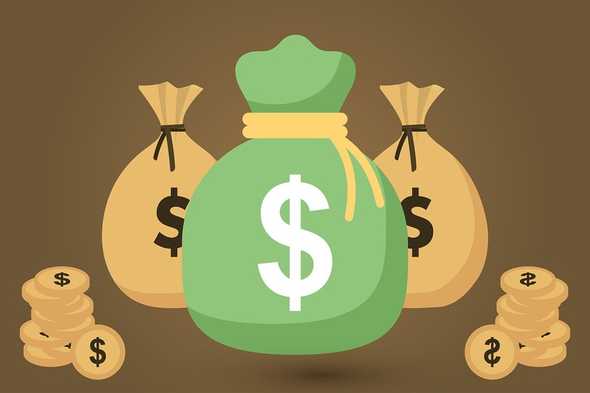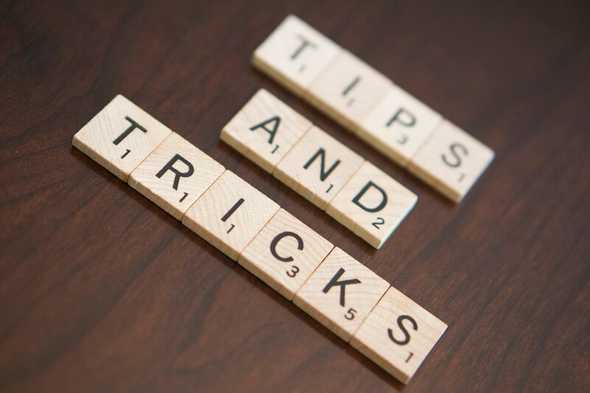Are Lottery Tickets/Winnings Taxed?
Who has not had a conversation about what you would do with your lottery winnings? Even people who don’t play the lottery talk about how much they would give to charity and what they would buy with their winnings. Dreaming is fun, but practical considerations—like how you will get the money, and how much you will actually receive — are also important.
So, are lottery tickets/winnings taxed? Yes, but the amount of taxes to be paid vary depending on many factors, including the state you live in, the amount you won, and what you plan to do with your winnings. You may also wind up more than the amount automatically taken out. If you win big, finding an accountant should be your first step.
Determining how much and what kind of taxes you will pay is complicated. Read on to get a basic understanding of what will happen. By the end of this article, you will know whether you can handle the taxes on your own or find an accountant to help.
How Much Did You Win?
How much you win makes a huge difference. There is a minimum amount at which you must claim your winnings. Then, as you win more, you take the risk of moving up in higher tax brackets.
Generally, if you win $600 or more, the lottery agency is supposed to provide you with the IRS Form W-2G. The G stands for gambling, and Uncle Sam considers gambling winnings as income. Before you decide to toss the form and not tell the government about your winnings, the agency will also submit a copy of the form to the IRS.
Exception: If you won $600 on a three-dollar ticket, the agency is not required to send in a W-2G because the winnings were not 300 times larger than how much you paid for the ticket.
Also, your state’s lottery agency is not required to withhold taxes until your winnings go up to $5,000. At that point, the agency will withhold 24%. That number is subject to change by a percentage point or two based on what happens with the tax code. Ballpark it to one quarter of your earnings, and you will be close enough.
Where You Live Matters
Federal taxes are the first tax-related expense most of us think about, but the state will also want its cut. In some cases, your city will also want a small slice of the pie. How does that work?
Just like the federal government considers lottery winnings as income, so does the state. How much your state will take depends on your state’s tax rates. This gets complicated quickly. States fall into three categories:
- No Income Tax. If you live in Alaska, Washington, Wyoming, Nevada, South Dakota, Texas, or Florida, you do not have to worry about the state taking your winnings.
- A Flat Tax Rate. Nine states tax everyone at the same rate, whether they earn $50,000 or $500,000. These include Colorado and Utah, Illinois, Indiana, Michigan, and Pennsylvania, Kentucky and North Carolina, and Massachusetts.
- A Progressive Tax Rate. If you reside in another state, your tax rates are based on your income — the more you make, the more they take.
If you live in a state that takes out income taxes, be prepared to carve out another slice of pie - unless you live in Delaware or California. Even though they have progressive income tax rates, those states don’t tax lottery winnings.
You will want to check with your state’s lottery agency to see at what point the state’s income taxes will be taken out. In North Carolina, for example, automatically takes out taxes with a prize over $5,000. In Illinois, all winnings above $1,000 are taxed at 5%.
Cities and Counties
You could be living in one of the 14 states that let cities and counties levy income taxes. Although these taxes are low, if you have large winnings, you might owe your local municipality another small slice of the pie. Whether they decide to tax your lottery winnings depends on the municipality.
You May Owe More Than What Is Taken Out
Remember that 24% of your state’s lottery agency takes from your winnings? If you think that’s that, you might be in for a surprise. If your winnings are large enough, you may wind up owing Uncle Sam even more money.
Much of this depends on what tax bracket you wind up in. For small winnings that do not bump you up out of your bracket, you will have already paid up. But what if your winnings bump you up into the next bracket?
The tax rate of 24% applies to individuals earning between 84,000 and 160,000 dollars a year (double that if married and filing jointly). Once you get above that, rates go up until they max out at 37% for incomes over $510,000 for a single person or $612,000 if married and filing jointly.
To further complicate matters, the more significant tax bite is only taken on the income above the maximum for that bracket. An individual who wins 200,000 dollars, will have to pay additional taxes on the amount of income above $160,000. Are you beginning to see why you might want to get a tax specialist involved if you win big?
Lump-Sum or Annual Payments Affect the Tax Bite
If you have the choice between taking a lump sum or annual payments, you should look at your long-term goals and weigh them against the effect a lump sum will have on your taxes. Taking the lump sum will put you into a higher bracket. That means you will have more taxes taken out.
Let’s say that you plan to purchase some rental property to have a passive income stream. You will not be able to get the five or ten percent down payment you made on your primary house when you buy homes for renting purposes. Most banks will ask for a down payment between 15-25%. In that case, it might be best to take the lump sum.
However, if you take the annual payments, chances are you will not jump up to the highest bracket, so your tax rate will be lower. Of course, you will receive an income every year. There is no guarantee that tax rates will stay where they are, though.
Once again, an accountant will be able to help you crunch the numbers.
You Can Reduce How Much You Owe
There are a variety of ways you can reduce how much you owe.
- Gambling losses. If you played the lottery regularly, the amount you lost could be deducted from your winnings. You would have needed to keep track of your spending. Several lottery apps can now help you with that. But no — you cannot deduct the amount you spent from your taxes, only from your winnings.
- Charitable contributions. When we have our what-will-you-do-if-you-won-the-lottery conversations, many of us say we are going to donate some of the winnings to our favorite causes. Doing so can help reduce the taxes you owe by allowing you to move down to a lower tax bracket. However, there are limits to how much can be deducted.
- Gift it. You can give some of your winnings to others without owing a gift tax. Currently, the limit you can give to a single person is $15,000 a year. Only payments given to the recipient will count — if you are paying for your child’s college tuition, that amount is not considered a gift.
Bottom Line
Lottery winnings are definitely taxed. Although technically any winnings are considered income, once you net 600 dollars, you are required to report the income to the IRS. You might also have to pay state income taxes. If your winnings are large enough that you must pick between a lump sum or annual payments, you should get an accountant with expertise in tax matters involved.
Winning big in the lotto doesn’t mean everything will be smooth sailing. There will be new problems you will have to deal with. However, having too much money is a problem many of us would like to have.
Related Articles
- Lottery Tax Calculator
- Why Does the Lottery Exist?
- Do Lotteries Benefit Education?
- Do You Pay Taxes on Lottery Winnings Every Year?
- What Is the Lottery Tax in Washington State?
- What Is the Lottery Tax in Texas?
- Lottery Annuity vs. Lump Sum: Which Is Better?
- What to Do if You Win the Lottery: The Ultimate Guide
- Here’s What Happens When You Win the Lottery
- How Much Tax Do You Pay on a $10,000 Lottery Ticket?





